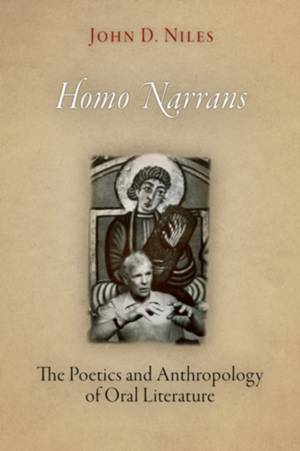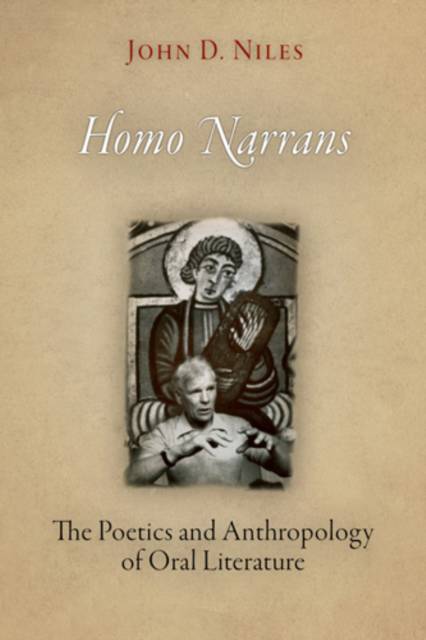
Door een staking bij bpost kan je online bestelling op dit moment iets langer onderweg zijn dan voorzien. Dringend iets nodig? Onze winkels ontvangen jou met open armen!
- Afhalen na 1 uur in een winkel met voorraad
- Gratis thuislevering in België vanaf € 30
- Ruim aanbod met 7 miljoen producten
Door een staking bij bpost kan je online bestelling op dit moment iets langer onderweg zijn dan voorzien. Dringend iets nodig? Onze winkels ontvangen jou met open armen!
- Afhalen na 1 uur in een winkel met voorraad
- Gratis thuislevering in België vanaf € 30
- Ruim aanbod met 7 miljoen producten
Zoeken
€ 51,95
+ 103 punten
Omschrijving
It would be difficult to imagine what human life would be like without stories--from myths recited by Pueblo Indian healers in the kiva, ballads sung in Slovenian market squares, folktales and legends told by the fireside in Italy, to jokes told at a dinner table in Des Moines--for it is chiefly through storytelling that people possess a past.
In Homo Narrans John D. Niles explores how human beings shape their world through the stories they tell. The book vividly weaves together the study of Anglo-Saxon literature and culture with the author's own engagements in the field with some of the greatest twentieth-century singers and storytellers in the Scottish tradition. Niles ponders the nature of the storytelling impulse, the social function of narrative, and the role of individual talent in oral tradition. His investigation of the poetics of oral narrative encompasses literary works, such as the epic poems and hymns of early Greece and the Anglo-Saxon Beowulf, texts that we know only through written versions but that are grounded in oral technique. That all forms of narrative, even the most sophisticated genres of contemporary fiction, have their ultimate origin in storytelling is a point that scarcely needs to be argued. Niles's claims here are more ambitious: that oral narrative is and has long been the chief basis of culture itself, that the need to tell stories is what distinguishes humans from all other living creatures.Specificaties
Betrokkenen
- Auteur(s):
- Uitgeverij:
Inhoud
- Aantal bladzijden:
- 296
- Taal:
- Engels
Eigenschappen
- Productcode (EAN):
- 9780812221077
- Verschijningsdatum:
- 19/03/2010
- Uitvoering:
- Paperback
- Formaat:
- Trade paperback (VS)
- Afmetingen:
- 150 mm x 229 mm
- Gewicht:
- 430 g

Alleen bij Standaard Boekhandel
+ 103 punten op je klantenkaart van Standaard Boekhandel
Beoordelingen
We publiceren alleen reviews die voldoen aan de voorwaarden voor reviews. Bekijk onze voorwaarden voor reviews.











